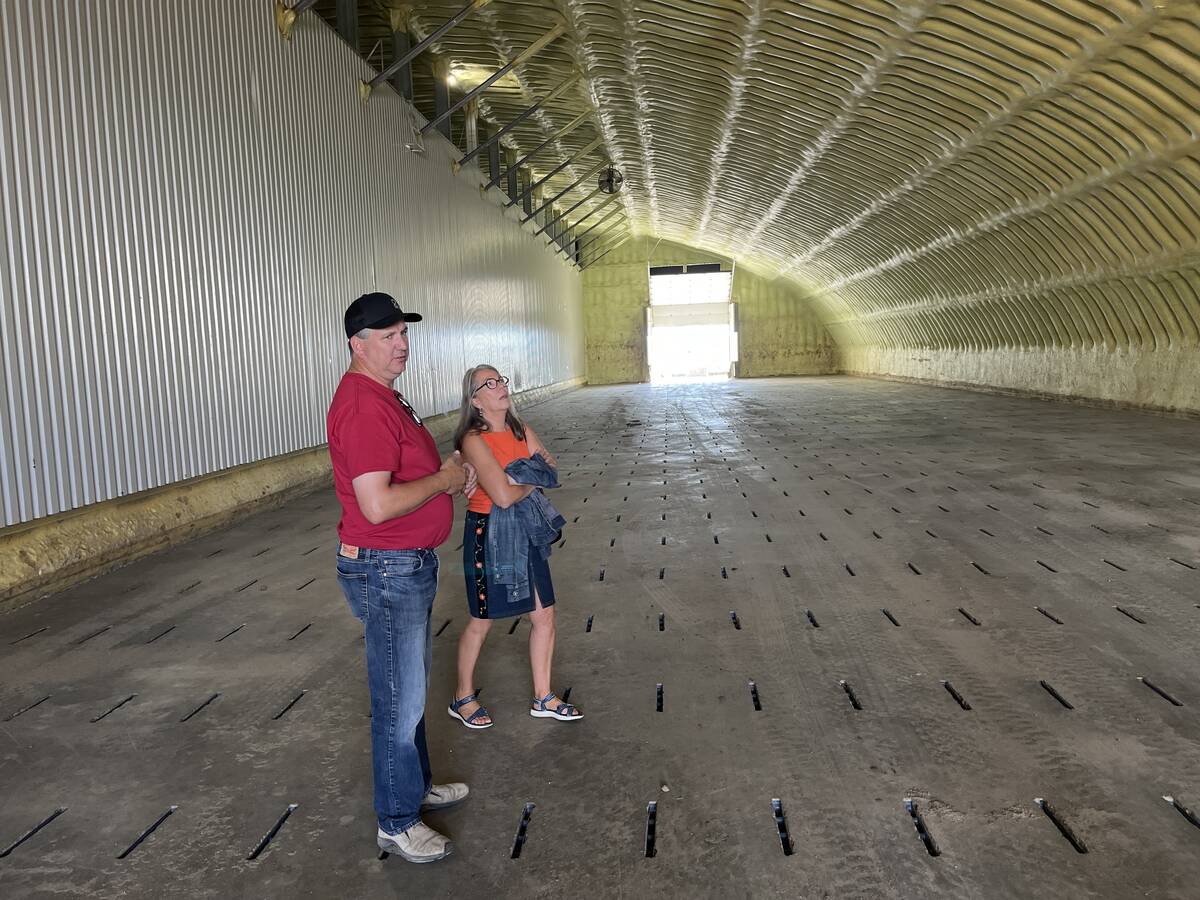Fifteen ranches, 1.9 million acres, 48,000 bison, 358 full and part-time employees, 13 species at risk and a half-time vet: that’s Ted Turner’s bison operation in a nutshell.
Russell Miller, general manager of Turner Enterprises, told Canadian bison producers at their recent national convention in Regina that the business didn’t get that big without some challenges.
“We’ve made lots of mistakes.”
For example, the company had a “na•ve perspective” about fences and grazing. It thought it would just let bison be bison and that they would graze consistently and evenly.
Read Also

Potato farm requires year-round management
The most recent Open Farm Day in Alberta showcased agricultural producers across the province educating the general public about the process that is required is to get food to their table.
In 1993, Turner told Montana stock growers that their cattle had destroyed riparian areas and that bison would never go in those areas.
“He has eaten crow,” Miller said.
On one of the ranches, the number of pastures dropped from 65 to one before increasing again to eight.
The largest of Turner’s ranches has between 3,000 and 3,500 animals.
Most of the animals spend time on a finishing ration but Turner also ships between 1,500 and 2,000 for slaughter each year through its grass-finished program.
Miller said all expansion has been done internally. Turner hasn’t bought an animal since 1993.
Turner is trying to maintain the genetics that way because his herd is one of the few private ones that replicates the genetics found in an unmanaged herd such as the one in Yellowstone National Park.
Miller said employees work the bison with four-wheeled all-terrain vehicles, except in New Mexico where they use horses.
“We’ve become better at working our bison,” Miller said. “We worry less about the numbers we put through in a day or how long it takes.”
Through the Turner Endangered Species Fund, work is under way on all the sites to protect species, restore riparian areas and reintroduce native fish species.
Miller said that aspect of ranching is “not a hobby or mindless pursuit” for Turner. The company’s management philosophy is to be economically sustainable in an ecologically sensitive manner.
In an interview, Miller said the company has not “fully investigated” buying a ranch in Canada.

















